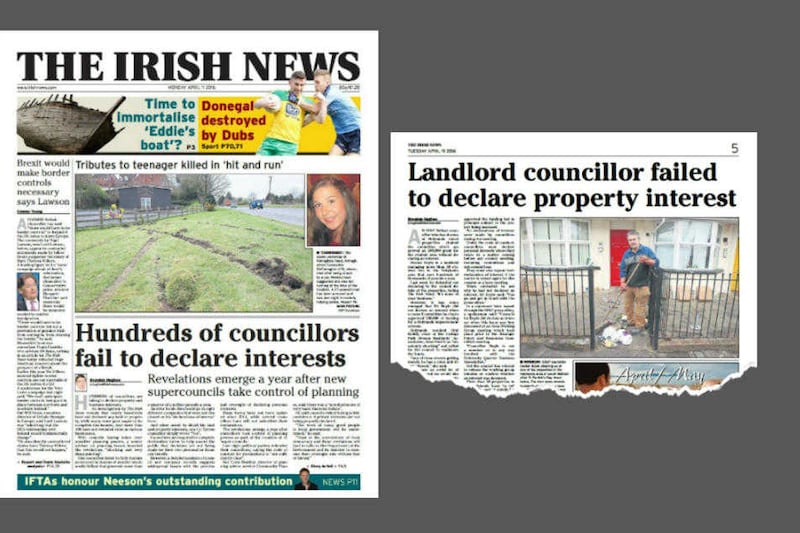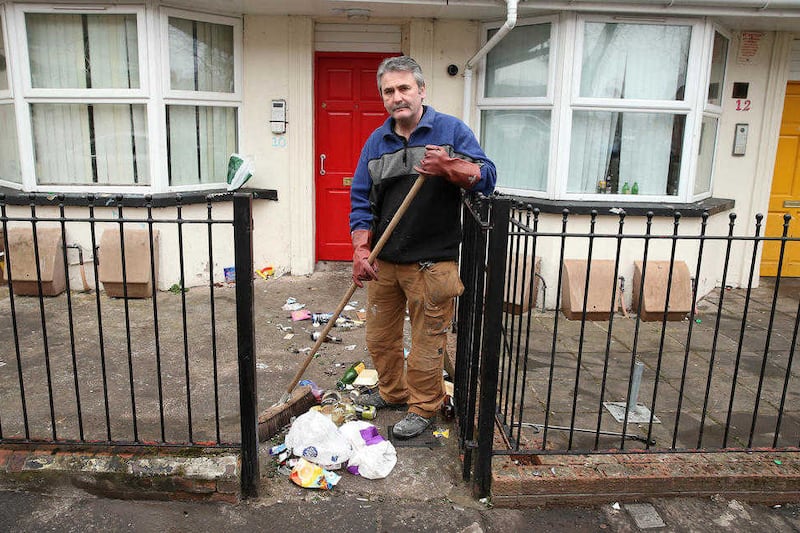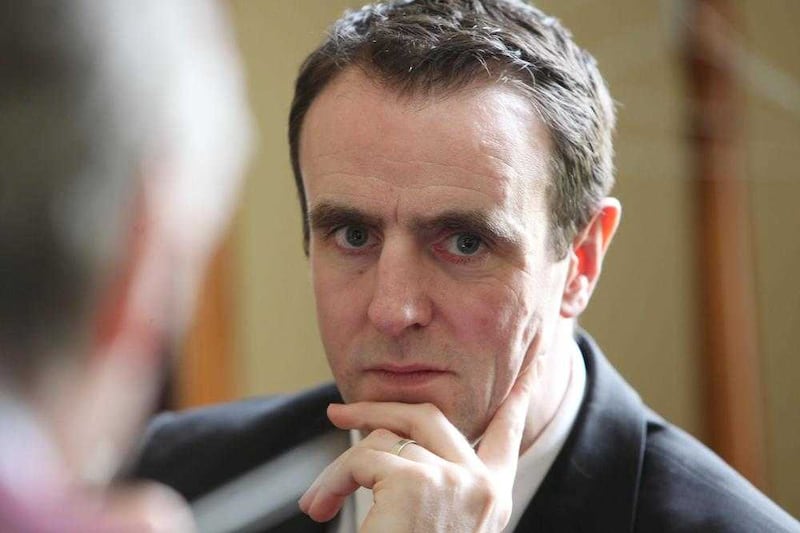MORE than a dozen councillors in the north have been allowed to keep secret from the public details of their property and business interests.
Councils in Northern Ireland have granted at least 14 councillors special permission not to disclose some details in their declarations of interest.
Most local authorities have refused to name the councillors involved, or explain the types of information they have been allowed to keep hidden and why.
Campaigners described the practice as a "disgrace" and called for greater scrutiny.
But the Northern Ireland Local Government Association (Nilga) said the system is both "pragmatic and accountable".
Councillors are required to register their interests on declaration forms to help assure the public that council decisions are not being made for their own benefit.
The disclosures are considered particularly important for public confidence as councillors last year took control of planning powers as part of local government reform.
However, councillors can get permission from the council's chief executive to not reveal declarations that are deemed 'sensitive'.
Under the regulations 'sensitive' information can be omitted if its inclusion would put the councillor or those they live with at serious risk of violence or intimidation.
No similar mechanism exists for the Northern Ireland Assembly, where MLAs must also publicly declare a range of personal interests.
Four councils – Belfast, Armagh Banbridge and Craigavon, Lisburn and Castlereagh, and Ards and North Down – said some councillors have been allowed to omit declaration details.
Lisburn and Castlereagh was the only council that named those who received approval, saying they had permission not to disclose their home address.
Others refused to disclose any details, saying it would "endanger the safety of the councillors concerned".
Of the 11 councils Newry Mourne and Down did not respond to the freedom of information requests.
Friends of the Earth's Northern Ireland director James Orr questioned whether chief executives should have responsibility for deciding which declarations can be kept a secret.
"For a council to be able regulate itself on these important matters is a disgrace," he said.
"No-one wants a councillor to be put at risk but there is a way of maintaining safety and protecting the public interest. An independent body should make this decision on the level and nature of the risk.
He added: "There are serious problems with regard to the transparency of decisions being made in Northern Ireland. We are not allowed to find out who funds our political parties. Now we find out that a councillor with decision-making powers on a planning committee can avoid telling us his or her financial interests. We can't even be told the name of that councillor.
"To build respect for our democratic institutions we need to shine a light into how decisions are made. We've been kept in the dark for too long."
A Nilga spokesman said the process enables omissions to occur after "objective consideration and scrutiny".
"Within the current councillors code of conduct, the permission regarding sensitive information is clearly laid out as are the reasons for such permissions," he said.
"We believe this to be both pragmatic and accountable, as well as being respectful of the duty of care for public representatives and their families.
"To name specific councillors in this context could create a greater risk to life, mindful of the small proportion of members this affects so once again we would consider this to be an appropriate course of action and as always, because of the danger aspect, individual guidance/circumstances have to determine the appropriate outcome."
Earlier this year an Irish News investigation examined business records and declarations for hundreds of councillors across the north.
It revealed that nearly two-thirds of councillors have not declared any land or property, while dozens have not disclosed their involvement in registered businesses.








